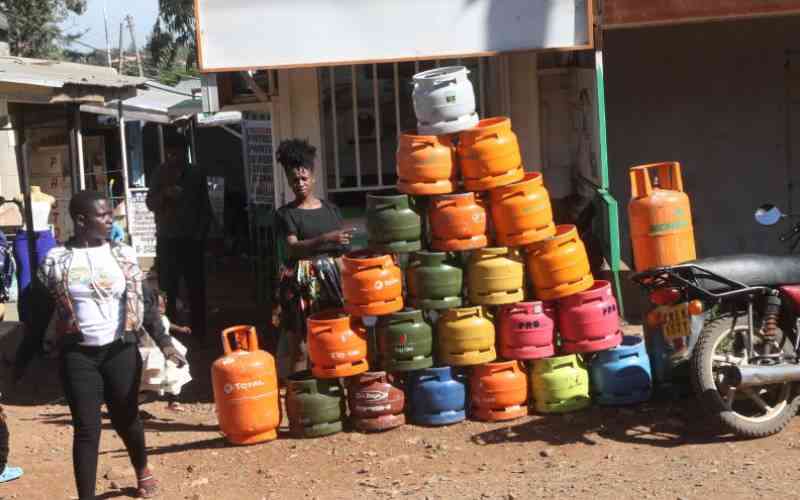×
The Standard e-Paper
Stay Informed, Even Offline

As part of transitioning more Kenyans from the use of firewood and kerosene to cooking gas, the government has proposed the supply of free liquefied petroleum gas (LPG) cylinders to 4.4 million poor households by 2025.
The envisioned issuance of a 6kg LPG cylinder to poor households will be done in partnership with the private sector, leveraging existing supply chains.